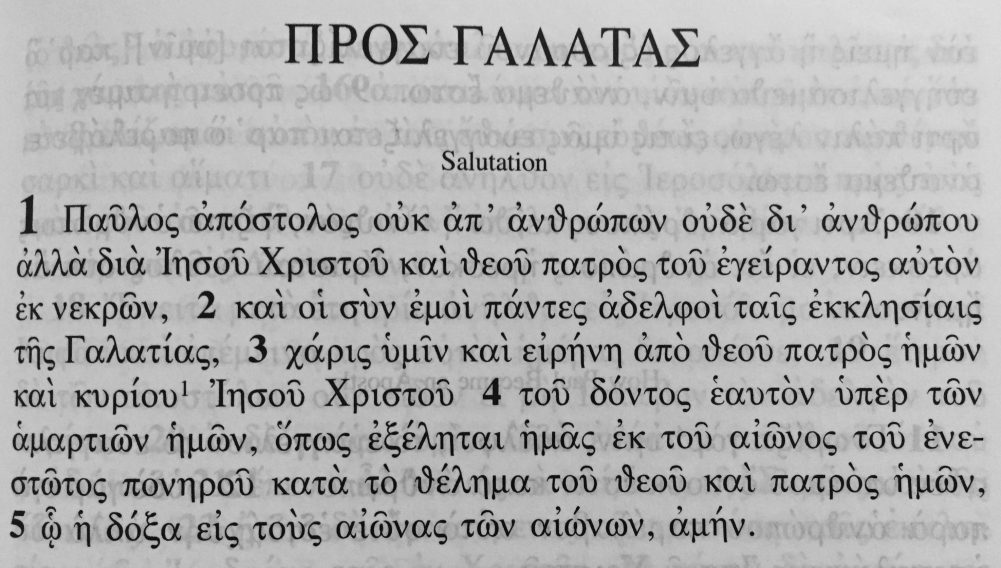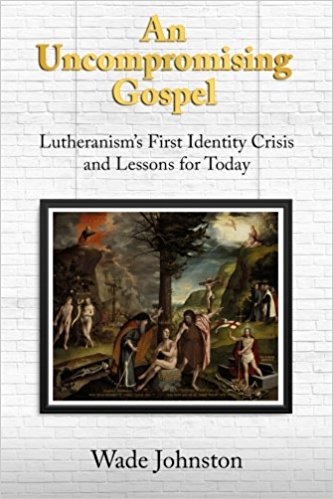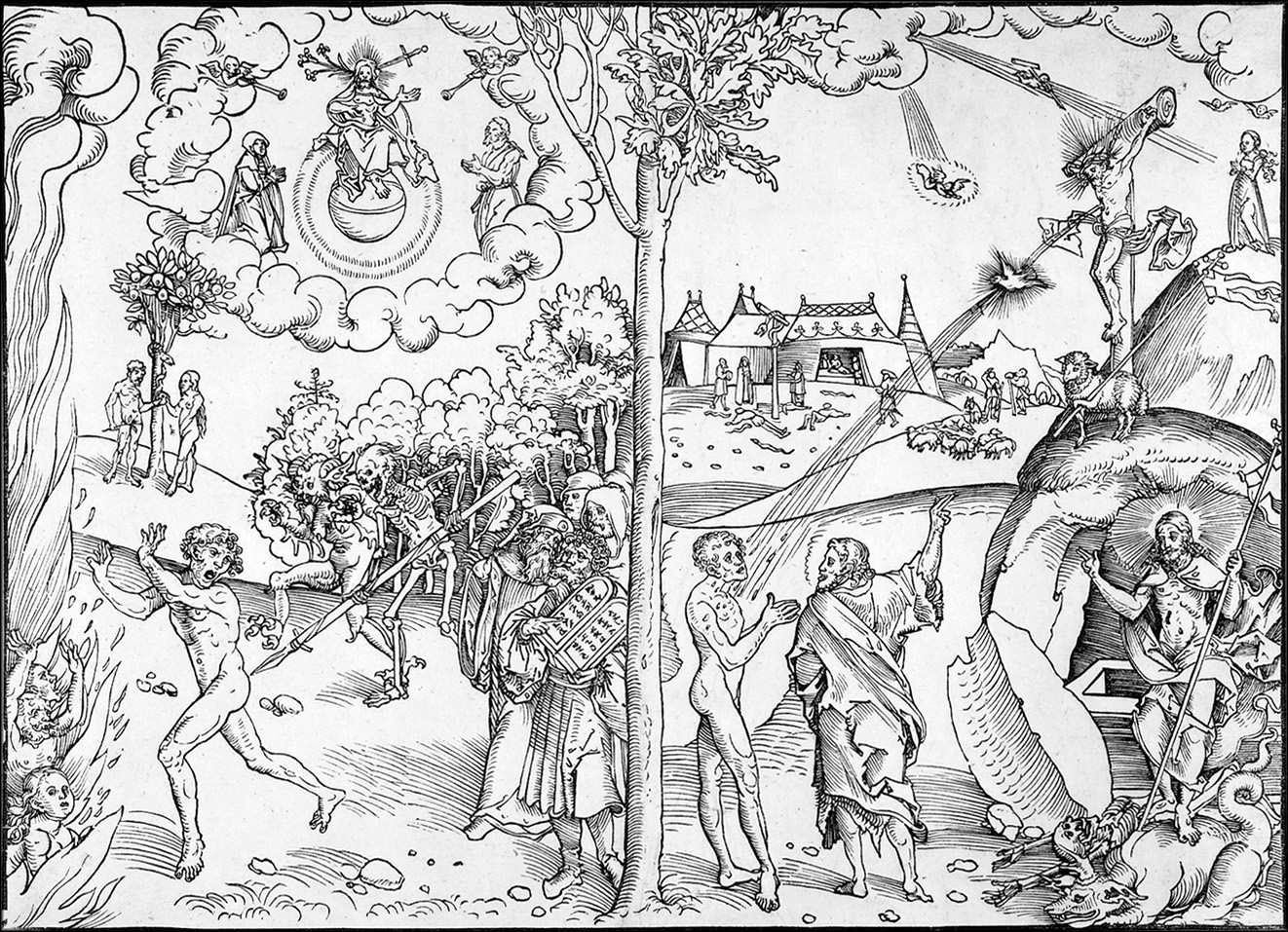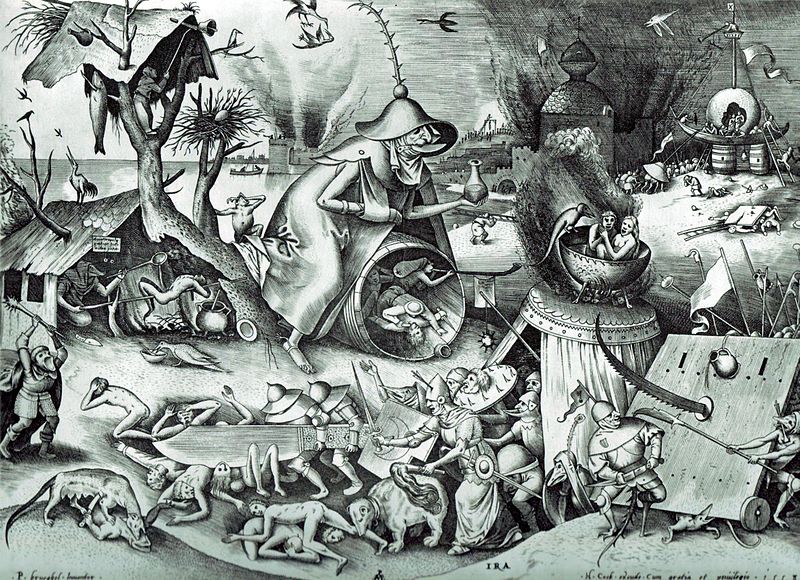Didn’t we just discuss how a church ought to conduct itself, how brothers and sisters ought to address possible differences in love? And now what do we have here but Paul acting unlovingly? Or was he? Why didn’t Paul take Peter (Cephas) aside privately? Why embarrass him in front of everyone? That doesn’t sound very nice, does it? Continue reading “Galatians 2:11-14”
Episode 12: An Uncompromising Gospel
A Life Well-Died
One of the questions philosophers have wrestled with, from the beginning, has been “What is a life well-lived?” It’s a Christian question, too, at least if you’ve been to a Christian bookstore. They’re often full of books on Christian living, although not Christian living in a very Lutheran sense. No, they’re often full of books full of principles for a successful life, a life that bears the marks of God’s love in material blessings (listen to Peter’s Scripture narrative in the episode coming out to learn more about the dangers of that thinking). In fact, in frustration, I’ve frequently joked that, if I ever open a Christian bookstore (which is unlikely, although I do have a name for a pub picked out, if my wife ever makes enough money for me to retire and lets me open one), the biggest section will be on Christian dying. Continue reading “A Life Well-Died”
Galatians 2:1-10
Here we have a good example of how the church ought to conduct itself. There was a concern that there was contradiction in the doctrine and practice of the churches of Christ. What did they do? Did they ignore it in the hope that it would just go away? Did they excuse any possible aberrations as quibbling over minor things? Did they refuse to discuss it in pride, certain that if there were error, it certainly couldn’t be on their end? Did they broadcast the potential heterodoxy of their colleagues far and wide and abroad? No, they met with each other, even when meeting together was not easy, when there were no high speed trains, jets, or cell phones, or email addresses. And then what happened? They confessed what they preached and taught and they listened, each in turn. And when it was evident that their doctrine and practice were not inconsistent with the Scriptures and the gospel of Jesus Christ and that each confessed one and the same Christ with the same pattern of sound words and according to the same revelation of the Word, they extended the right hand of fellowship, and in so doing, reminded each other that Christian faith goes hand in hand with Christian love, expressing their concern for the poor, those who had lost family and livelihood for the faith especially. Continue reading “Galatians 2:1-10”
Do We Want Sinners in Heaven? I Sure Hope So.
I’m not going to lie, I want sinners in heaven. I have a personal, very vested interested in that. I’ll go even farther, I want impenitent sinners in heaven. In fact, I think that’s sort of the point of evangelism. I’ll also admit, my statements couldn’t be more biblical (I should want these things), but they could also very easily be misunderstood, so let’s unpack them a bit. Continue reading “Do We Want Sinners in Heaven? I Sure Hope So.”
Have You Made It?
From time immemorial, human beings have been obsessed with fame. People have wanted to be head of the tribe, mayor of the village, or the best whatever. People want to be important. People want to matter. People want to make it.
Here’s the thing, though. People are important. People do matter. People don’t make it. Two out of three ain’t bad, right? The simple fact is, people matter, because they’re people. People are important, because they’re people. Both of these are clearly true, because God became man and died and rose for people. The third, that’s more complicated. Continue reading “Have You Made It?”
Galatians 1:11-24
St. Paul’s gospel was not his own, and he did not preach it to please men, but Christ, whose approval was paramount, for it was the gospel of Christ that Paul of which Paul was a minister. And the gospel is still not any man’s gospel, not man’s gospel at all. No man could have thought it up. It is unlike any religious message every proclaimed in human history, or ever to be proclaimed. It turns all spirituality and religious thought on its head. Man does not go to God, and man does not reconcile himself to God or placate his Maker, but rather God and our Maker comes to us, reconciles Himself to us, and placates Himself in the person of His Son, who is the sacrifice for sin, our propitiation. Not only is there nothing for you to do, there is nothing you can do. You are incapable of saving yourself in any degree, even the slightest. You are utterly dependent upon Christ our Savior, and thank the Lord for that, because otherwise doubt inevitably would creep back in and the devil would exploit it to the fullest, as he is wont to do, and adept in so doing. Continue reading “Galatians 1:11-24”
Galatians 1:10
And right there you have the problem with the much of the American church today, and much of the church of history: striving for the wrong approval and working to please the wrong person. Was St. Paul cold-hearted or indifferent to the needs of others? Surely not. He didn’t purposefully offend. Far from that, he went out of his way to avoid giving offense in his ministry, but never at the expense of law and gospel, never at the expense of the centrality of Jesus Christ, for without the proper distinction of law and gospel and the centrality of Christ there is no God-pleasing and truly Christian ministry. Continue reading “Galatians 1:10”
Galatians 1:6-9
“If it ain’t broke, don’t fix it.” Most of us are familiar with the saying, and the saying gets said for a reason: we love to tinker, and our tinkering often leaves things worse off than they were before. The gospel isn’t broken. It never has been and never will be. And yet in every age of the church, Christians and hypocrites alike have set to tinkering with it, whether purposefully or out of ignorance, whether with every good intention or with malice. The gospel is not ours, though. It is God’s, given to us, but not ours to tinker with. Things of God don’t break. Things of God are good, very good, and unchanging, like God Himself. They are sure and certain. They are reliable and always relevant, no matter what anyone says. And that is crucial. That is the reason that the Christian faith has chops. It has something to hold onto, something to bite into, something on which to rest. Continue reading “Galatians 1:6-9”
Galatians 1:3-5
Love and wholeness, isn’t that what most people want? Write a book on those topics and it’s going to sell. As human beings, we are born with a yearning for love and wholeness, we are born, in essence, with a hole in our heart that we then spend our days trying to fill. The bad news is that our old Adam and fallen reason turn to everything but what can actually fill that hole and satisfy the hungry heart and longing soul, whether a bank account, bottle, library, mirror, or one-night stand. In the end, what was never intended to fill that hole can only exacerbate our yearning, increase our frustration, and enlarge that emptiness within. And so, quite understandably, Paul begins by wishing the Galatians grace (God’s underserved love) and peace (wholeness, a right relationship with God). And not only that, but more than simply wishing them such significant things, he continues to tell them how these blessings come to us. Notice, they come to us, and we do not come to them. The answer does come from a bottle, on a plate, in a book, but not in the way fallen men would suppose. The answer comes, not in creations, but with the Creator, who uses creation to bring us these, His greatest gifts, grace and peace, love and wholeness, through the Means of Grace. Continue reading “Galatians 1:3-5”





